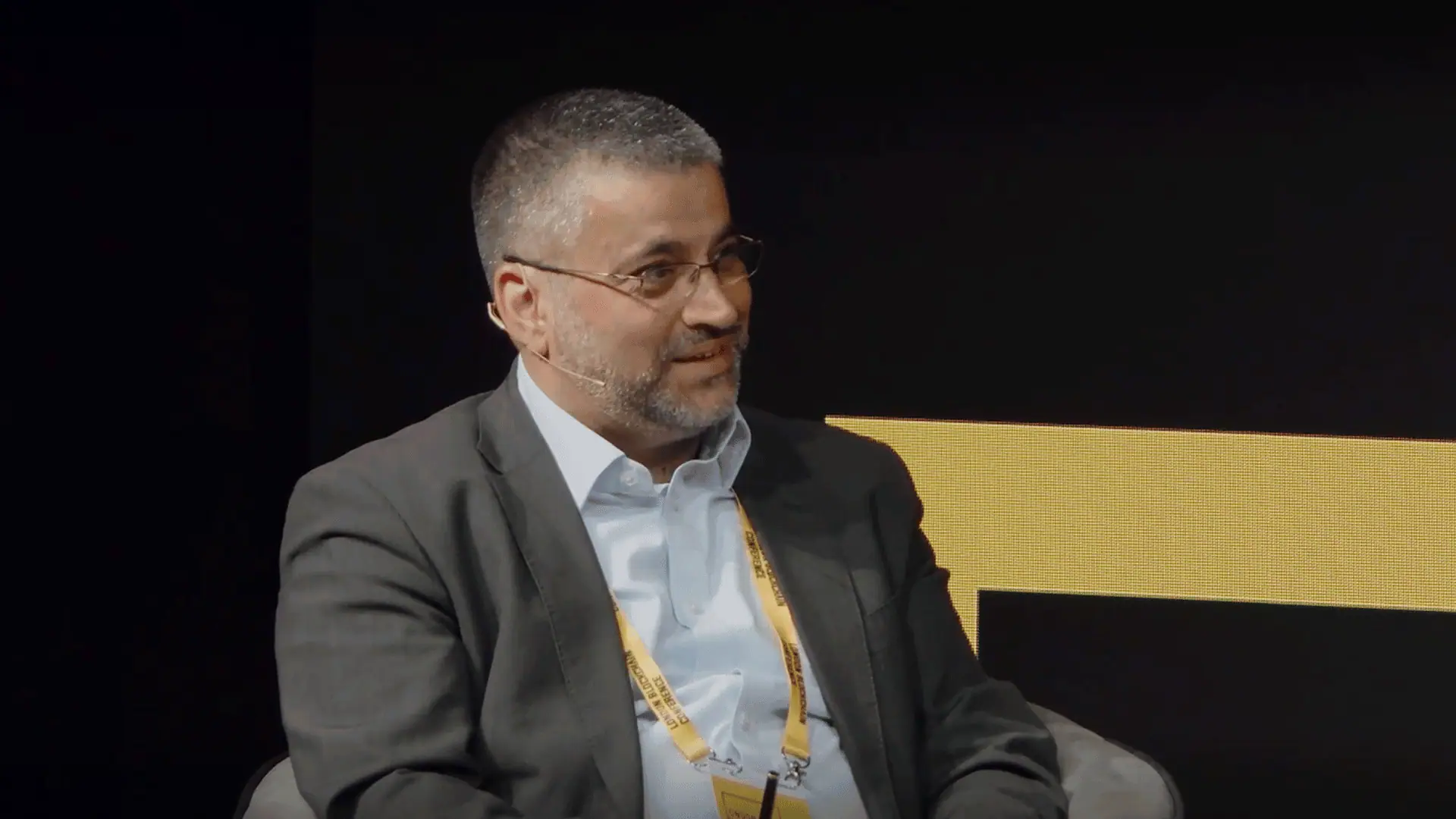|
Getting your Trinity Audio player ready...
|
The dueling concepts of ‘blockchain for security’ and ‘security for the blockchain,’ were unpacked at the opening panel discussion on the “Insight stage” of the London Blockchain Conference 2024, with real-world benefits outlined, but concerns raised about the looming future threat of quantum computers.
On May 21, the London Blockchain Conference 2024 kicked off with three days of panel discussions, speeches, demonstrations, and presentations. The event was hosted in one of the cavernous exhibition halls of the ExCel centre, the U.K. capital’s premier conference venue—thanks to its location in the Royal Docks on the banks of the Thames and its endless supply of coffee stands.
Early on the Day 1 agenda was “How blockchain technology is reshaping the landscape of cybersecurity,” a discussion hosted by John Velissarios, founder and director of Otranto Limited, an IT security consultancy—so a man with skin in the game and no shortage of experience when it comes to tech security issues.
After some brief introductions to the assembled attendees filling the Insight Stage room—curtained on all sides by black drapes that give the impression an interpretive theatre production is underway—Velissarios handed the mic over to Robert Huber, TechLead at Veridat, a SaaS platform provider that “streamlines the capture of critical data to a public blockchain.”

Providing security with the blockchain
Huber focused on the ‘security of the blockchain’ side of the issue, explaining that with a myriad of business sectors, “the right decisions can only be made if the data is completely accurate.” This is where the blockchain and its characteristic immutability come into play.
He suggested that the blockchain provides “a layer of truth over existing data.”
“We record key events in the digital workflow in ways that make them immutable and timestamped. Because data is data, those solutions apply to any company, any business, anywhere,” Huber said.
He suggested that a lack of trust is a problem in the business world, and one solution to this is to generate a “lightweight integrated platform” to serve as third party auditing, which is one solution Veridat offers to clients.
Another of Veridat’s roles, explained Huber, was inserting itself into the supply chain. By doing so, the company introduces security and data control systems for its clients “to add transparency from end to end.”
He also gave a couple of use case examples, the first was related to trade compliance with Lacey Act (1900/2008), a U.S. wildlife protection law that makes it a federal crime to import, export transport or purchase of any fish, wildlife or plants that have been taken or sold in violation of any law, treaty, or regulation of the United States—essentially trade in illegal wildlife goods.
Huber explained how Veridat’s system is being used by companies to make sure all their products are tracked from source and compliant with the Lacey Act.

Another example related to the pharmaceuticals lifecycle, which requires detailed and accurate information around the manufacturing process for the purposes of regulators—an area Veridat can help with, by applying the blockchain.
“Regulatory compliance is not cheap to comply with, but noncompliance is more expensive,” Huber pointed out.
However, he concluded his presentation by clarifying that his company deals in “blockchain for security, rather than security for blockchain.” This is where the second panelist came into the discussion.
Security for the blockchain
After an opening that explored real-world cases of blockchain providing security benefits by adding “a layer of truth to data,” the panel pivoted to how you provide security for the blockchain itself.
Joseph Kearney, research associate at the University of Kent, focuses on this very question and began his talk by emphasizing that “you can’t have blockchain for security without a secure blockchain.” And as he explained, the blockchain is by no means beyond security concerns.
“I believe quantum computers will pose a severe threat to almost every blockchain we use,” warned Kearney.
This may seem a somewhat hypothetical dilemma as quantum computers—a rapidly emerging technology that harnesses the laws of quantum mechanics to solve problems too complex for classical computers—are still a matter for research and development, not yet a reality, and a long way from a widely available reality (if ever).
However, Kearney suggested the threat is very real and perhaps not so far off as people may think.
“When people ask when we will see quantum computers, the answer is always ‘fifteen years’… but by 2030 we might well be in a position where we have quantum devices,” he said.

“Essentially, digital signatures are vulnerable to attack, as is proof of work, from quantum computers… Unless we do something about it, it’s inevitable that we’ll see this type of attack.”
However, Kearney wasn’t all doom and gloom about the future of blockchain security, saying, “I believe blockchain can be a shining beacon for the rest of the world” in terms of how it navigates this potential threat.
The future of blockchain security
Velissarios rounded off the panel by asking both speakers what people in the space should be doing to make blockchains more secure. To which Kearney suggested that every project starting today should have post-quantum in mind and that any solutions, unfortunately, are “going to affect the efficiency of our blockchains, but that’s the place to start.”
He closes off by going even further, suggesting that when it comes to dealing with these threats appropriately, “the point we will reach at some point is a choice between having a slightly less efficient blockchain, or not having a blockchain” accompanied by the sound of concerned mumblings and dozens of eyebrows raising in unison.
Offering the attendees a bit more of an optimistic ending to cling to, Huber simply concluded by saying “it’s clear that blockchain digital records have a huge benefit in many different ways.” An important one of which, he said, is in the artificial intelligence field, an area very much at the forefront of London Blockchain Conference 2024.
Watch Cybersecurity: Blockchain is a technology of trust

 07-09-2025
07-09-2025 





